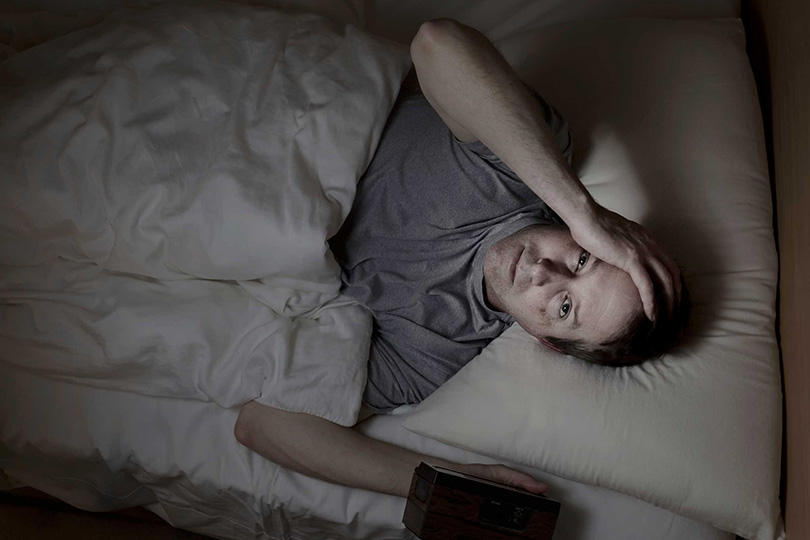Olga Khazan
My body’s preferred way to remind me that I’m aging is through pain. In recent years, my level of consequence-free drinking has plummeted from “omg liMitLe$s!!” to one and a half standard glasses of Chardonnay. In yoga, I am often forced not to enter the “fullest expression of the pose” and instead to just kind of lie there.
And then there is The Tweak. About once a month—not at any certain time of the month, but roughly 12 times a year—I will wake up feeling like someone French-braided my neck muscles overnight. The pain burns from the base of my skull, down one side of my neck or the other, and onto the adjacent shoulder blade. The Tweak makes it impossible to rotate my head fully to one side or the other for the day. It’s not an athletic injury—I know no sport. It’s also not related to any underlying medical conditions that I know of, though when I talked with experts for this article, they asked me “if I am stressed,” which I took to be a rhetorical question.
Generally, The Tweak leads me to spend the day hunched over in my chair, kneading at my neck with fingers and marker caps. But it usually goes away by the next morning. So I felt lucky when I connected with a dentist named Michael, who told me he has also experienced mysterious neck pain. (He asked me not to use his last name, because he worried it could affect the terms of his life-insurance policy.) Except his situation was much, much worse.
One night back when Michael was in high school, he awoke to what felt like an electric shock zapping the left side of his neck. Muscles in his neck had tightened so much that his head was drawn down to his shoulder. The slightest movement—even talking—was excruciating. He was able to move his hand enough to reach his TV remote, which he used to turn on the set and dial the volume all the way up. The blaring TV woke up and summoned his parents, who called an ambulance. The diagnosis was torticollis, an ailment in which the neck muscles spontaneously contract. He needed muscle relaxers to get his neck to untwist.
Michael still doesn’t know why it happened, but he remembers the EMT saying one thing that sticks out in his mind: “You sure have a lot of pillows on your bed.” It was true: He had three or four pillows around his head, as well as a body-length one. “I like my pillows,” Michael told me. But pillows might have been his undoing.
When people have neck pain, they often say “I slept on my neck wrong,” but in reality, says Natasha Bhuyan, a primary-care doctor with One Medical, it’s more like you slept the wrong way for your neck. The best way to sleep is on your back, and second-best is on your side, she says. When you sleep, you want the tip of your nose to be perpendicular to your chest, like you’re going down a waterslide. Or lying in a casket. A pillow that’s too soft or thin will cause your neck to flop back too much, while one that’s too firm, or simply too high, would push your neck too far forward.
If you sleep on your stomach, you’re forced to turn your neck too far to the left or right, which is also not ideal. “Cranking your neck to one side all night with your arm overhead is a recipe for increased tension on the neck and shoulders,” says Brian Schwabe, a sports physical therapist in Los Angeles. “Add a thick pillow, and you are looking at a painful morning.”
Bhuyan recommends one of those memory-foam pillows with a divot in it, which can support your neck while keeping your nose properly aligned.
Several physical therapists and personal trainers told me that outside the bed, I might be leaning my head too close to my computer screen or phone during the day. A few years ago, I wrote about the scourge of text neck, in which supposedly up to 60 pounds of force weigh on your neck as you lean forward to check your bae’s Insta Story. This is, of course, in addition to the already heavy weight of FOMO.
The other morning-neck-pain culprit is poor sleep, which can happen because of anxiety, insomnia, or too much caffeine, among other factors. In one study of more than 4,000 people, those who had moderate-to-severe sleep problems were more likely to develop chronic musculoskeletal pain after a year than those who slept more soundly. Poor sleep can make it hard for your neck muscles to relax, which increases the likelihood that they’ll tear during the night. And that’s what neck pain is: little tears that appear in your neck muscles. The reason it often gets better by the next day is that the tears simply repair themselves.
As for Michael’s torticollis, it might have been a sign that his neck muscles were so fed up with the pillow situation—or something else—that they “just contracted down really severely,” Bhuyan says. “Like, ‘No, we’re done with this.’”
And so am I. While still lying in bed in agony, I one-click ordered the pillow she recommended from Amazon.







Comments